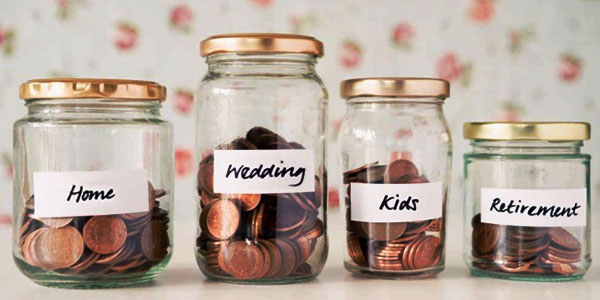Being in your 20s was fun. However, once you’re in your 30s, you begin to feel as if you’ve come of age. As an adult, you’re making more money as compared to the time when you did start after graduation. At this age, your personal financial management strategy is a bit more polished.
Still, you’ve to stay clear of some of the most crucial monetary pitfalls that people mostly of your age commit and ruin whatever asset they’ve created in these couple of years.
1. Kick your emergency savings into high gear
When you’re in your 30s, your income will increase in tandem with the added responsibilities like mortgage or childcare. So, you need to beef up your emergency savings and raise a bigger financial cushion for life’s sudden, out of the blue expenses.
2. Up your retirement savings to 15 % of your pay
When saving money for retirement, it’s always advisable to contribute around 15% of your paycheck, and that includes the amount paid for by your employer. In case you saved little to no money at all during your 20s, your 30s could play a crucial role to help you catch up with the lost time and save as much as you can.
3. Start an investment portfolio
With a sizeable emergency fund in your account, don’t let loose all the extra cash for menial purposes. Rather, use them to invest in the financial markets and accelerate your chances of achieving your goals faster, be it a wedding or a down payment.
If you’re clueless about what you should do with your dollars, creating an attractive investment portfolio will save your day and help your money grow more rapidly. Your 30s is the apt time to create wealth other than your house and retirement accounts.
Such a financial approach would set you up for relaxed golden years.
4. Be (mostly) debt free
You could use the plastics to earn cash/rewards for flights, get shopping discounts and other goodies. You could also pay for utility bills, Internet or telephone bills using credit cards and pay back the balance within the billing cycle to avoid interest or late penalty charges.
5. Write a will and prep other legal documents
You need to think seriously of having a proper will in place to save the day for your children in your absence. Wills are important, and they become all the more indispensable with your growing assets and savings.
6. Get your insurance in line
It’s high time you thought about having a proper insurance in place that would cover your immediate family members like spouse or children or parents financially. You could buy a policy that will provide your spouse with the money to pay off bills like a mortgage in your absence.
7. Maximize retirement savings
Take advantage of your employer-funded retirement programs that match your 401(K) contributions or any other similar contributions. Act on it smartly and never give up on free money.
8. Manage financial risks
Always keep your policies like disability or life insurance updated, and review them at regular intervals, for your family’s welfare and financial security.
Tell us: What personal finance lessons have you learned?
9. Understand 'Good debt' and 'Bad debt'
Be cautious with whatever loan you take out. Moreover, you could still be paying for one of your financial mistakes committed in your 20s.
10. Give back
Giving back could prove silly and given the hectic schedule you’d have, engaging in any social welfare activity would seem to be a distant dream. But, you could donate to a local charity on a regular basis.
11. Financially independent of your parents
Your parents will always want to cover all your needs. But overdoing it may disrupt your goal of becoming financially self-sufficient.
Break away from bad financial habits to get the most out of your paycheck. For instance, if overdraft has become a menace for you, it's best that you rectify yourself from it in your 30s.
12. Establish good credit history
Work toward having a flawless credit history. A good credit history will show that you are responsible with your money and that you never live on the brink of your credit cards’ limit.
Moreover, it’ll always keep you in good stead while making big ticket purchases like a home.
13. Done with impulse purchases
Once in your 30s, you have an idea that money will be useful for you only if you have them. It’s better that you stop spending on unnecessary items and stay away from lifestyle inflation.14. Willing to spend where it counts
Spend on items that matter. Your dorm-room days are long gone. You are now in your 30s, and so, you’d be buying some nice interiors for your home.
15. Stick to a budget
Creating a budget and sticking to it is a discipline that requires continuous effort rather than tracking every dollar. You could take advantage of scores of online budgeting tools, software programs, and other financial websites to ease your personal financial management tasks.
By this time, you might have married and have started raising a family. Hence, your monthly house expenses had undoubtedly increased as compared to the days when you were single.
But, make sure to play it out safe with whatever you do.
Read also: Turned 20? 6 Financial milestones you need to achieve now









